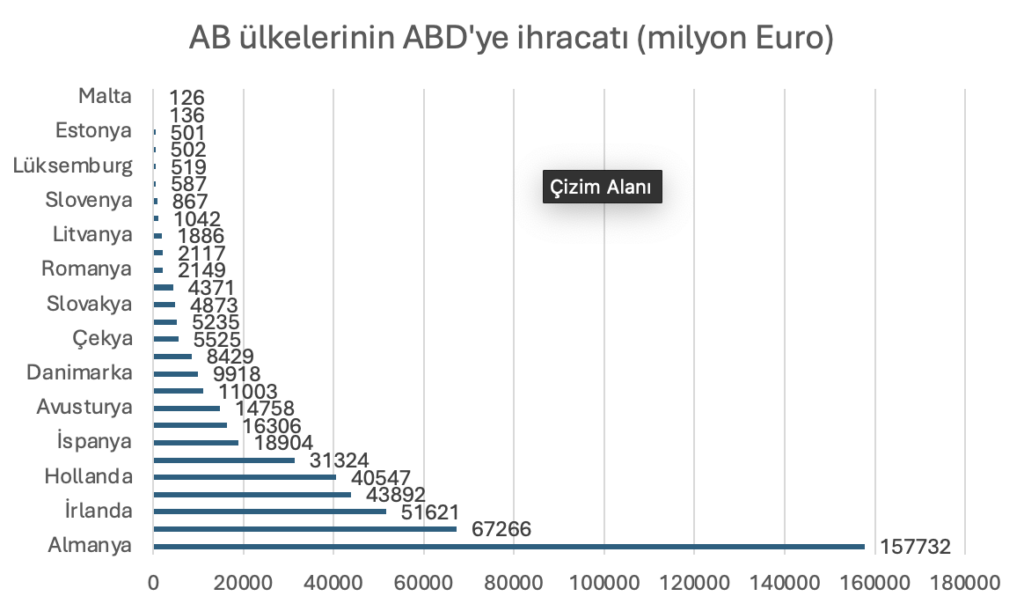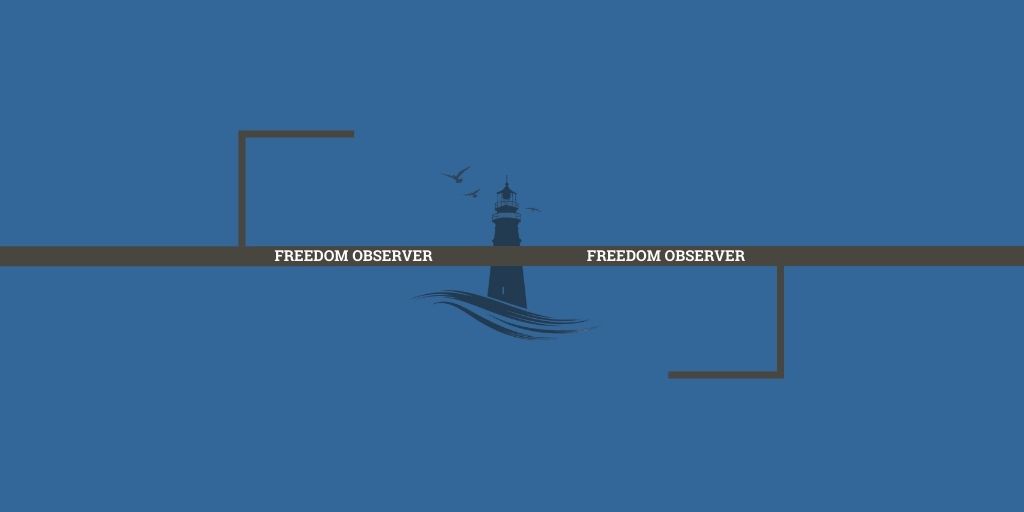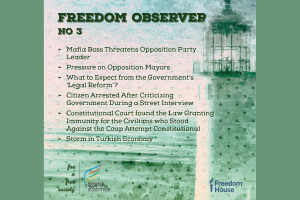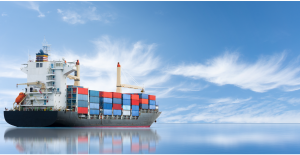
From Editor-in-Chief
The recent State of Turkish politics resembles a ship caught in a storm, swaying uncontrollably from side to side, with an incomprehensible cacophony of voices echoing from within. The storm is all too familiar to Turkey: the chronic Kurdish issue. The sources of the cacophony are also evident: Tayyip Erdoğan, Devlet Bahçeli, the DEM Party, and the CHP, along with the “State” and palace bureaucrats.
As one might expect, the result of this scene is uncertainty. After weeks of this collective cacophonic performance, it remains unclear whether the Government is pursuing a new initiative aimed at resolving the Kurdish issue or, if such an initiative exists, what the exact plan entails. More fundamentally, there is significant doubt about whether the State and the People’s Alliance genuinely intend to resolve the Kurdish issue through peaceful and democratic means.
At the core of this ambiguity are Bahçeli and Erdoğan. Both, but particularly Bahçeli, have turned the issue into an enigma through their cryptic remarks and actions. Bahçeli, in particular, has rendered the matter theatrical with his eccentric videos and frequent social media posts, each concluding with the slogan “The time has come.”
In the previous two Freedom Observer issues, we summarized developments on this matter since the beginning of October and concluded that there were no genuine signs indicating that the ruling bloc had any intention of initiating a peaceful and democratic resolution to the Kurdish issue. Meanwhile, the long-circulating rumors were finally confirmed by Bahçeli’s renewed call on November 6, reinforcing the belief that the primary goal behind all these developments is to amend the Constitution to secure Tayyip Erdoğan’s re-election as president.
However, a paradox emerges here: to achieve this aim—unless they have another shocking surprise up their sleeves—the People’s Alliance needs the support of the DEM Party. Yet, without tangible progress towards a peaceful and democratic resolution (including the acknowledgment of Abdullah Öcalan’s “right to hope”), the DEM Party’s support for a constitutional amendment seems unlikely. That said, nothing is certain. Perhaps the Erdoğan-Bahçeli duo plans to involve the DEM Party by improving Öcalan’s conditions and initiating legal steps for his right to hope, only to later stall on fulfilling broader expectations for a democratic resolution.
On the other hand, the alignment between former President Abdullah Gül’s statement to an Arab newspaper—where he emphasized the need to “clearly distinguish between the Kurdish people and the PKK”—and a similar remark previously made by President Erdoğan seems significant. This alignment suggests that there might be an internal effort within the State to create conditions that would encourage the Kurdish population to withdraw support from the terrorist organization and turn towards the AKP. Additionally, this effort appears to include involving Öcalan, along with his close circle, as a political actor in the process.
In this scenario, the State’s ultimate plan might be the dismantling of the PKK, particularly its leadership based in Kandil, and the weakening of the DEM Party, which it perceives as the PKK’s political extension. Over time, this could pave the way for establishing a “loyal” Kurdish opposition under Öcalan’s leadership. (Note how Kandil is consistently targeted in Erdoğan and Bahçeli’s speeches, while Öcalan is deliberately excluded from this narrative.)
In summary, rather than a genuine intention to resolve the Kurdish issue democratically, the strategy of the State and the People’s Alliance seems to be driven by security concerns and calculated political maneuvering. We are, at the very least, facing an atmosphere of uncertainty that appears deliberately manufactured. However, we might not have to wait too long to see what this ambiguity ultimately yields.
In recent developments, the Turkish Government has resumed its policy of appointing trustees to replace elected officials, a practice it had previously paused. This shift is evident in the removal of Esenyurt Mayor Ahmet Özer and Mardin Mayor Ahmet Türk, among other Kurdish mayors, from their positions, with trustees appointed in their stead. This undemocratic and extralegal action has sparked widespread public discontent. Notably, criticism has come not only from DEM Party members but also from figures like Özgür Özel, especially since Esenyurt Mayor Ahmet Özer was elected from the CHP.
Despite these criticisms, President Erdoğan has staunchly defended the trustee policy. In his recent statements, he harshly criticized both the dismissed Esenyurt Mayor Ahmet Özer and the CHP leader who supported him. Erdoğan justifies the trustee appointments as a tool in the fight against terrorism, stating, “There is no place for terror and terror-backed politics in Turkey’s future. We will dismantle the death machinery of the terror barons in Kandil.”
Last week, an interesting piece of news surfaced that seems entirely disconnected from the country’s general agenda. Overshadowed by discussions of the Kurdish issue and the trustee policy, reports suggested the possibility of the paramilitary organization Hamas, which leads the resistance against Israel in Palestine, relocating its office from Qatar to Turkey. This speculation arose amid indications that Qatar, under pressure from the United States, might shut down Hamas’s office due to its unwillingness to agree to a ceasefire. As is known, although Hamas is recognized as a terrorist organization by the Western world, it aligns closely with the ruling AKP’s worldview.
The Qatari Ministry of Foreign Affairs has denied the rumors of closing Hamas’s office. Nonetheless, the potential relocation to Turkey presents a troubling scenario for the country. The prospect of hosting a paramilitary organization actively at war with Israel raises justified concerns across various segments of Turkish society. Most significantly, providing refuge to a group engaged in conflict with Israel could theoretically place Turkey in the position of a party to the war.
However, considering Turkey’s dual stance—condemning Israel for massacres in Gaza and Lebanon while continuing to provide logistical support for its war efforts—it is likely that diplomatic channels will find a way to address this issue. Setting aside the moral implications, the more pressing concern lies in the degree to which Turkey is willing to jeopardize its relations with allies and its international commitments by drawing closer to an organization labeled as terrorist by the United States and the European Union.
In this issue, Ali Rıza Çoban examines the latest Observation Report by the United Nations Human Rights Committee on Turkey, Ömer Faruk Şen discusses the issues surrounding the appointment of trustees to CHP municipalities and the investigations launched against them, and Caner Gerek analyzes the economic expectations under the administration of the newly inaugurated U.S. President, Donald Trump, who will take office in early 2015.
We look forward to meeting you again in the next issue of Freedom Observer.
* Prof. Dr. Mustafa Erdoğan
Human Rights Committee’s Observation on Turkey
Turkey became a party to the International Covenant on Civil and Political Rights (ICCPR) in 2003. One of the monitoring mechanisms provided by this Covenant is the periodic submission of reports by state parties to the Human Rights Committee, the body responsible for overseeing the implementation of the rights guaranteed by the Covenant. Turkey submitted its first report in 2012, which was reviewed during the Committee’s 106th session, held between October 15 and November 2, 2012. The Committee published its observations on this report on November 3, 2012.
Turkey submitted its second report to the Committee in 2022. This report was reviewed during the Committee’s 4162nd and 4163rd meetings, held on October 23-24, 2024, and the Committee adopted its concluding observations at the 4179th meeting on November 5, 2024. These observations were published on November 7, 2024.[1]
Before the review of the report, Turkey’s civil society submitted approximately 70 reports to the Committee, addressing various human rights issues and aiming to inform the Committee members about the human rights landscape in the country. Moving forward, it is of critical importance for civil society organizations to monitor and report on the implementation of the recommendations outlined in the Committee’s observations.
The Committee’s latest Observation Report spans 15 pages and contains 69 paragraphs, addressing nearly all of Turkey’s core human rights issues. The report expresses concern over Turkey’s failure to comply with the request to withdraw its reservation on Article 27 of the Covenant, which safeguards minority rights. The Committee reiterates its call for Turkey to lift these reservations.
The report highlights the concentration of executive powers to the detriment of the legislative and judicial branches following the 2017 constitutional amendments enacted under the State of Emergency. It emphasizes that these changes have effectively dismantled the separation of powers and accountability mechanisms. The Committee recommends legislative reforms to restore the separation of powers and ensure accountability, with particular attention to securing the judiciary’s full independence and impartiality both in law and practice.
Additionally, the report criticizes the Turkish government’s 2021 and 2023 Human Rights Action Plans for failing to include effective measures to ensure judicial independence or to prevent the misuse of anti-terror laws to silence dissent. The Committee recommends that any future action plans address these shortcomings comprehensively.
The report criticizes the lack of impartiality and pluralism in the structure of the Human Rights and Equality Institution, as well as its refusal to address complaints of discrimination based on sexual orientation and gender identity. The Committee recommends effective investigation of all forms of discrimination, hate speech, and hate crimes, ensuring that perpetrators are prosecuted and appropriately punished and that victims have access to legal remedies.
It further emphasizes the need to respect the rights enshrined in the Covenant during states of emergency. Measures restricting human rights must be exceptional, temporary, non-discriminatory, proportional, absolutely necessary, and subject to independent judicial oversight. The Committee also urges the immediate, independent, impartial, and effective investigation of all allegations of human rights violations committed during states of emergency. It calls for the prosecution and appropriate punishment of those responsible, as well as compensation for the victims.
The report also includes recommendations on the following issues:
- Counter-Terrorism: Ensuring that counter-terrorism efforts comply with the law, making anti-terror legislation predictable, and preventing its misuse.
- Violence Against Women: Implementing legal and administrative measures to prevent all forms of violence against women, punishing perpetrators, and supporting victims.
- Corruption: Taking necessary measures to prevent corruption at all levels and to investigate allegations of corruption.
- Enforced Disappearances and Abductions: Conducting effective investigations and prosecutions of cases, punishing perpetrators, and eliminating legal provisions granting immunity to intelligence personnel involved in such actions.
- Torture and Ill-Treatment: Investigating allegations effectively, prosecuting and punishing perpetrators, and supporting victims.
- Arbitrary Detention and Arrests: Preventing unjust detentions and arrests by implementing necessary measures, applying alternative measures to detention, and ensuring detainees’ rights under the Covenant.
- Human Trafficking: Taking all measures to prevent trafficking in persons.
- Migrant, Refugee, and Asylum-Seeker Rights: Ensuring their rights are protected.
- Fair Trial Rights: Securing judicial independence, ensuring the functional autonomy of prosecutors, restructuring the Council of Judges and Prosecutors (HSK) to guarantee its independence and pluralism, and basing judicial appointments, promotions, and transfers on merit with objective criteria. Procedural safeguards in trials must be upheld, and those arbitrarily dismissed from public service must be provided judicial oversight aligned with international standards, with reinstatement for those found to have been unjustly removed.
- Privacy and Data Protection: Ensuring data security and preventing arbitrary interference with privacy.
- Freedom of Religion: Recognizing the right to conscientious objection, repealing Article 318 of the Turkish Penal Code (“alienating the public from military service”), and removing restrictions on religious freedom for minorities.
- Human Rights Defenders: Preventing pressure and unwarranted investigations against human rights defenders.
- Freedom of Expression: Ending undue restrictions on expression, halting unnecessary access bans, and decriminalizing defamation.
- Freedom of Association and Assembly: Stopping interventions that hinder the exercise of these freedoms.
The Committee specifically requests the Government to provide information by November 8, 2027, regarding whether the recommendations on three issues (judicial independence, the right to a fair trial, and freedom of association) have been implemented. The Government’s next report is due in 2031, and the Committee’s next evaluation will take place in 2032.
* Doç. Dr. Ali Rıza Çoban – Constitutional Lawyer
Trustees and Investigations Targeting CHP Municipalities
In recent days, the Government’s actions against CHP-led municipalities have intensified, including the appointment of trustees, investigations, and audits. Since late October 2024, coinciding with Bahçeli’s call for an Öcalan initiative, the political landscape has become increasingly complex. On October 31, 2024, CHP’s Esenyurt Mayor Ahmet Özer was arrested on charges of “membership in an armed terrorist organization,” leading to the appointment of Istanbul Deputy Governor Can Aksoy as trustee to Esenyurt Municipality. The Ministry of the Interior described this appointment as a “temporary measure” based on Articles 127 of the Constitution and 45 and 46 of the Municipal Law. However, many CHP members and segments of the public view this as a political maneuver aimed at suppressing the opposition and potentially initiating another case against İmamoğlu, thereby hindering his political career.
In addition to this development, a series of financial investigations and audits have been launched against CHP-led municipalities, primarily targeting the Ankara Metropolitan Municipality (ABB). The Ankara Chief Public Prosecutor’s Office requested permission from the Ministry of the Interior to investigate allegations of irregularities in concert expenditures organized by ABB as part of the 101st Republic Day celebrations. Following these requests, the Ministry’s Inspection Board assigned inspectors to evaluate the claims regarding ABB concerts and prepare a report.
Similarly, an investigation has been initiated into expenditures related to three different concerts in Beykoz Municipality, as well as spending on Beykoz Anadolu Sports AŞ’s second-league football team. CHP Chairperson Özgür Özel argued that these investigations aim to “punish voters who support the CHP” and to render CHP municipalities ineffective. Özel stated that these operations are attempts to discredit the municipalities and emphasized that they will not yield to judicial and governmental pressure on local administrations.
Lastly, it is important to note that this mix of “trusteeship, investigations, audits, and foreclosure threats” targeting CHP-led municipalities is not genuinely aimed at uncovering the fate of public expenditures. Undoubtedly, if public funds are being wasted through inflated invoices, accountability must be ensured. However, considering that similar expenditures occur in AKP-run municipalities, comparable levels of SGK debts exist, and statements made by individuals now within the AKP before the end of the so-called “peace process” — regarded as a turning point by the party — it becomes clear that this is an attempt to weaken potential rivals in the presidential elections by leveraging state power and resources.
* Dr. Ömer Faruk Şen– Missouri University
Economic Expectations in the Trump Era
Donald Trump’s victory in the 2024 U.S. presidential election has introduced significant policy changes that will shape the future of both the U.S. and global economies. The economic policies to be implemented under his administration are expected to play a decisive role in American and global markets. This bulletin examines the economic impacts of Trump’s presidency.
The first effects of Trump’s election were observed in the stock market. Investors, anticipating corporate tax cuts and regulatory easing under his administration, drove stock prices higher following the election results. Republicans aim to make income tax reductions permanent and to fulfill Trump’s promise to reduce corporate taxes to 15%.
However, Trump’s policies are likely to pose challenges for U.S. companies, one of which will be the introduction of new tariffs. Trump previously stated, “To me, the most beautiful word in the dictionary is tariff. It’s my favorite word.” With higher tariffs, costs for importing firms will rise. While this may benefit domestic producers by protecting local manufacturers and boosting employment, the increase in tariffs is expected to drive up prices, leading to inflationary pressures as a result of higher costs.
Another development that could affect both firms and consumers is Trump’s immigration policies. His plans to deport undocumented immigrants could create uncertainty and additional costs for businesses. However, the feasibility of implementing this policy remains questionable. The potential imposition of additional tariffs ranging from 10% to 20% on all imports to the U.S. could negatively impact international companies that have structured their operations around globalization. Exporting firms may be forced to relocate their production to the U.S., aligning with another of Trump’s goals. China is expected to be the most affected by these tariffs, which could rise to as much as 60%. During Trump’s first term, the trade deficit with China began to narrow. As trade with China decreased, trade with other Asian countries saw significant growth. Consequently, the new tariffs are likely to impact other Asian countries more heavily. South Korea and Taiwan, due to their privileged trade positions, may be less affected. However, China’s attempts to bypass trade barriers through Vietnam leave the future of trade with Vietnam uncertain.
Tablo 1: AB ülkelerinin ABD’ye ihracatı

Kaynak: Avrupa Komisyonu
The European economy is also expected to be negatively affected by the tariffs. According to Nomura’s report *”What if Trump wins?”*, the United Kingdom, as the largest exporter to the U.S., may be the most impacted. However, if Trump’s tariffs target goods rather than services, other European countries could face greater challenges. As shown in Table 1, Germany would be the most affected country, particularly in the chemical and automotive sectors. Following Trump’s election, Germany’s decision to hold early elections led to a depreciation of the Euro against the U.S. Dollar.
From Turkey’s perspective, expectations are mixed. Trump’s cabinet appears to include figures with unfavorable views toward Turkey. Relations during his first term were generally negative, though fluctuating. Economic challenges, which escalated significantly during Trump’s previous presidency, persist.
However, there are also potential benefits for Turkey under Trump’s policies. For instance, his plans to end the Russia-Ukraine war could positively impact Turkey, given its significant trade volume with Russia. Similarly, if the conflict in Palestine is resolved, it could create certain positive effects for Turkey.
According to a report by the Peterson Institute, Turkey and Russia stand to benefit the most from Trump’s presidency. This is attributed to their relatively low trade volumes with the U.S. and the influx of strong capital investments into agriculture and manufacturing, which could boost overall capital investment.
Türkiye’s exports to the United States amounted to $14.8 billion by the end of 2023, representing only 5.7% of its total exports.
The realization of these expectations in Trump’s second term heavily depends on his adherence to his promises. Many analysts harbor significant doubts in this regard, which heightens economic uncertainties associated with the Trump era. Only time will reveal the sincerity of Trump’s commitments.
* Dr. Caner Gerek
1https://tbinternet.ohchr.org/_layouts/15/treatybodyexternal/Download.aspx?symbolno=CCPR%2FC%2FTUR%2FCO%2F2&Lang=en





